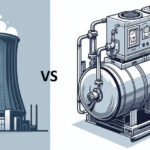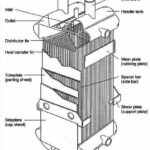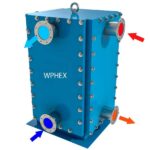Petrochemical plants are complex facilities that produce a wide range of chemicals and fuels from various feedstocks, such as crude oil, natural gas, and coal. These plants require sophisticated process control systems to ensure efficient and safe operation, as well as to meet product quality specifications and regulatory requirements. One approach to optimizing the performance of petrochemical plants is through advanced process control strategies.
Advanced process control strategies
Advanced process control strategies (APC) involves the use of mathematical models and optimization algorithms to predict and control the behaviour of the process, and to optimize the process variables to achieve specific objectives, such as maximizing product yield, minimizing energy consumption, and reducing emissions. Advanced process control strategies has been shown to improve the performance of petrochemical plants by reducing variability and improving control over the process.
One of the most important components of APC is model predictive control (MPC), which uses a dynamic model of the process to predict future behaviour and optimize the control actions accordingly. MPC can handle nonlinear and dynamic processes, as well as disturbances and uncertainties, by incorporating real-time measurements and updating the model parameters accordingly. This helps to ensure that the process is operating optimally under changing conditions.
Another key aspect of Advanced process control strategies is online optimization, which involves continuously adjusting the process variables to maximize a performance index, such as profit, while satisfying operational constraints and product quality specifications. Online optimization can be used to address process inefficiencies and to optimize the use of resources, such as energy and raw materials. By optimizing the process in real-time, operators can make more informed decisions and respond to changing conditions more quickly.
APC can also be used for fault detection and diagnosis (FDD), which involves monitoring the process variables and identifying abnormal conditions and potential faults. FDD can help prevent equipment damage and product quality issues, and can facilitate timely corrective actions to minimize downtime and losses. With FDD, operators can identify potential issues before they become critical and take action to prevent costly downtime or quality issues.
Implementing Advanced process control strategies in petrochemical plants requires careful planning and coordination, as well as specialized expertise in process modelling, optimization, and control. It also requires a robust and reliable data acquisition and control system, as well as a continuous improvement program to update and refine the models and control strategies. This means that the investment in APC can be significant, but the benefits can be substantial in terms of efficiency, safety, and profitability.
One example of the benefits of APC in petrochemical plants is in the optimization of crude oil refining processes. Refineries are complex facilities that convert crude oil into a wide range of products, including gasoline, diesel fuel, and petrochemicals. The refining process involves a series of chemical reactions and separations that are highly nonlinear and dynamic, and that can be affected by changes in the feedstock, operating conditions, and product demand.
By implementing MPC and online optimization, refineries can optimize the process in real-time to maximize product yield, minimize energy consumption, and reduce emissions. For example, MPC can be used to predict the behaviour of the process under changing conditions, such as changes in the feedstock composition or product demand. Online optimization can then be used to adjust the process variables to optimize the performance of the process in real-time.
Another example of the benefits of APC is in the integration of renewable energy sources in petrochemical plants. Renewable energy sources, such as solar and wind power, are becoming increasingly important in the petrochemical industry as companies seek to reduce their carbon footprint and comply with environmental regulations. However, the integration of renewable energy sources can be challenging due to their intermittent and variable nature.
APC can help to overcome these challenges by optimizing the use of renewable energy sources in petrochemical plants. For example, MPC can be used to predict the availability and variability of renewable energy sources, and to optimize the operation of the plant accordingly. Online optimization can then be used to adjust the process variables to minimize the use of fossil fuels and maximize the use of renewable energy sources while meeting operational constraints and product quality specifications.
Summary
Advanced process control strategies, such as MPC, online optimization, and FDD, offer significant benefits for petrochemical plants in terms of efficiency, safety, and profitability. By implementing these strategies, petrochemical plants can optimize their operations in real-time to achieve specific objectives, such as maximizing product yield, minimizing energy consumption, and reducing emissions. However, implementing Advanced process control strategies requires careful planning and coordination, as well as specialized expertise in process modelling, optimization, and control. With the right approach, Advanced process control strategies can help petrochemical plants achieve their operational and environmental goals while staying competitive in an increasingly complex and challenging market.
External links
Quick process and instrumentation diagram – Create Process and instrumentation diagrams (P&ID) and Process flow diagrams (PFD)











